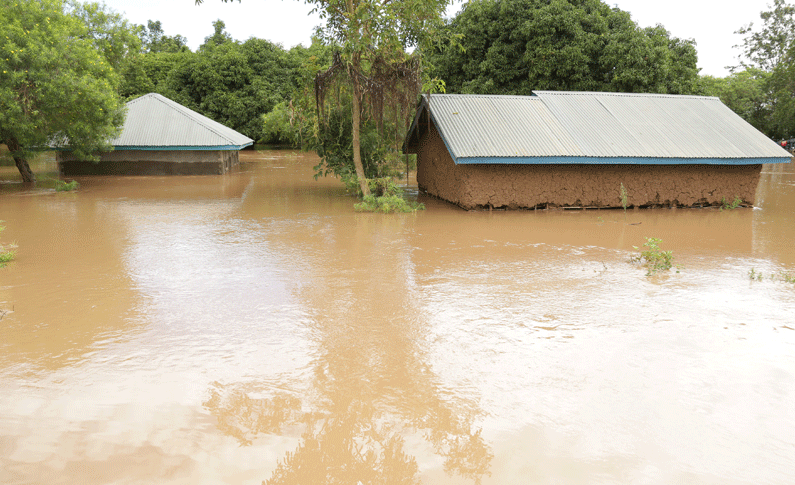Heavy rain displaces families, destroys property in Naivasha

The ongoing rains continued to wreck havoc in Naivasha displacing tens of families and destroying property worth thousands of shillings.
In Ndabibi area, over 400 people from Nduro, Kipkonyo and Huruma villages were left homeless after their homes and major roads washed away.
Roads to the area located 40kms from Naivasha town have been cut off paralyzing efforts to rescue the affected families majority of whom are peasant farmers.
The affected families have pointed an accusing finger to one of the flower farms in the area for blocking water-ways and poor farming in the nearby area of Kosovo leading to massive soil erosion.
According to one of the area leaders Patita Ole Kererai, business in the three trading centers had been paralyzed due to the floods.
Kirerai said that this problem started ten years ago but had worsened due to deforestation in Kosovo where government owned agency ADC was farming.
“We have been reduced to beggars yet we can be able to produce our food and the only way to solve this problem is by planting trees in Kosovo and Mau areas,” he said.
He lashed out at one of the flower farms for the current crisis saying that the management should be compelled to open the blocked water ways.
“We do not want donations by the county as we are capable of producing our own food and all that we want is a lasting solution to this problem,” he said.
Another victim David Chege from Huruma village said that many families had lost all their personal effects and food to the floods.
He noted that unlike other areas, their personal effects had been covered in soil washed from the nearby hills making it impossible to recover them.
“The floods are washing soil from the nearby forest and farms downhill thus covering our houses and personal effects,” he said.
An elder Peter Gikonyo said that all roads in the area had been cut off making it impossible to access services in the hospital and nearby towns.
Gikonyo said that the situation had been worsened by Covid-19 pandemic which had seen tens of flower farm workers in the region sent home.
“This is a perennial problem that is getting worse by the year and the only solution is relocation before we lose lives to the floods that have currently covered our homes,” he said.












